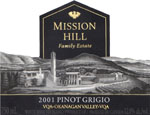|
|
|
|
|
Get
all the evaluations for
the MAY
Release National Post Weekly Wine & Spirits Columnist Saturday, April 5, 2003 It’s called the “heartbreak” grape
and it’s no wonder. Without doubt, Pinot Noir is the greatest
challenge confronting any winemaker. Unlike many other prized red grape
varieties, this thin black skinned beauty with its white juice one will
only excel under the most demanding of conditions. If it is too hot, it
will ripen too early before the gorgeous fruit flavours evolve. If the
fall is too cool or rainy, the taste will be focused on green apple as
opposed to cherry. Yield is absolutely critical, even if the
climate is perfect. When the crop is too large, the flavours will be
muted (simply plum focused), mouth feel diminished and finish shortened.
It is an expensive proposition because optimal cropping levels might
only be 20% of other popular red grape varieties. Then there is the
problem related to the selection of the “right” species of Pinot
Noir vines (referred to as “clones”). For my palate, Swiss clones
generally don’t deliver the flavours I relish, while preferred French
Dijon clones offer seductive cherry flavours. Pinot Noir rarely ever gets big points for
colour, which comes from initially macerating (or basically stewing) the
grapes and/or juice on the dark skins. In fact, colour has little if
anything to do with ultimate Pinot Noir quality.
While these efforts are admirable, the
annual tasting results have unfortunately been mixed. I would feel like
Goldilocks being invited over to the Three Bears house only to be served
the first two courses. Well thankfully with this 2000 vintage, I have
finally got to taste the third course and let me tell you - it’s
“just right.” While Inniskillin winemaker Philip Dowell experienced
challenging cold/rainy Spring conditions (which resulted in crop
reductions), he was blessed with a dry, warm October. The flawlessly
ripe grapes were picked with perfect, life-giving, high acid levels.
Harvesting took place on October 5th – two weeks later than
in previous vintages and the results are excellent. Vintages
have 500 cases on hand (1,589 cases produced) of Inniskillin 2000 Pinot Noir Reserve at
$16.95. Terrific value at the price, look for a fragrant, gently cedary,
ripe cherry nose with hints of ruby grapefruit. On the palate, it is
elegant, if somewhat earthy, with tangy, ripe plum and lingering, dried
ripe red cherry flavours. At or near its peak, this crowd pleaser would
be perfect pan-seared yellow fin tuna. Ironically, it is significantly better than
the upcoming Labouré-Roi 2000 Cote de Beaune-Villages
at $26.40 (April 19) and certainly more delicious to drink now than the
extracty, well-made Oregon
St.
Innocent 2000 Pinot Noir at
$52.95, which needs to be laid away.
Check out the
| ||
|
Copyright Food & Beverage Testing Institute of Canada
2004 |

 All
of these “ands, ifs and buts” come to mind as I prepare to dig into
yet another Ontario Pinot Noir, this time
All
of these “ands, ifs and buts” come to mind as I prepare to dig into
yet another Ontario Pinot Noir, this time Even
better, although only available at the winery at $24.95 (560 cases), is
Even
better, although only available at the winery at $24.95 (560 cases), is  Getting
back to today’s release, one of the tastiest treats to hit the shelves
is the Okanagan Valley
Getting
back to today’s release, one of the tastiest treats to hit the shelves
is the Okanagan Valley One
of the most interesting whites of the release comes from Germany’s
Pfalz, the surprisingly dry and full-bodied (with 13.5% alcohol)
One
of the most interesting whites of the release comes from Germany’s
Pfalz, the surprisingly dry and full-bodied (with 13.5% alcohol)